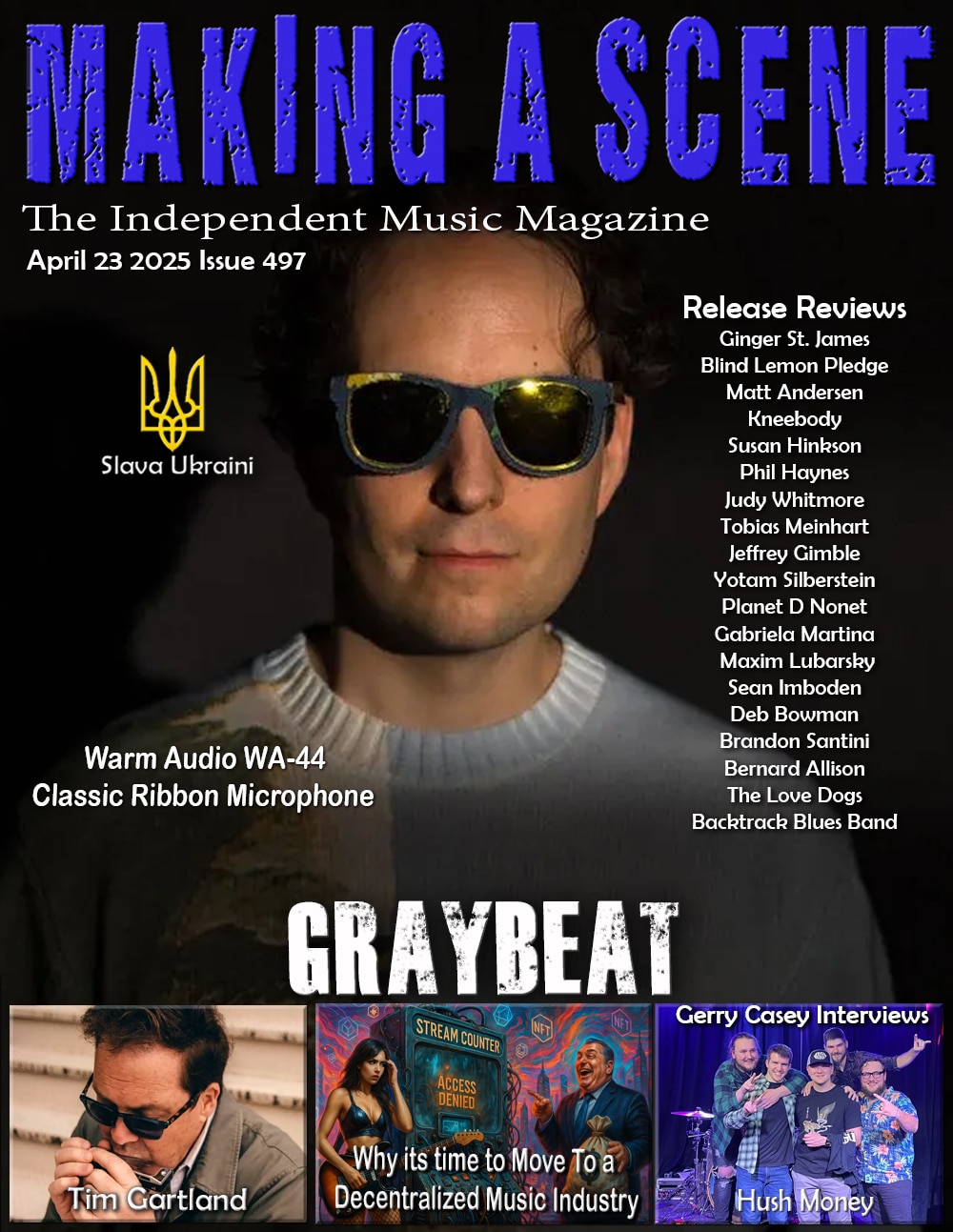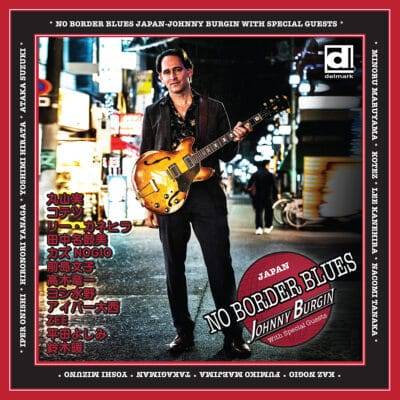Johnny Burgin No Border Blues
Johnny Burgin
No Border Blues
Delmark Records
Johnny Burgin attended The University of Chicago where he soon fell into the Chicago Blues scene. The guitarist’s first professional gig was backing the vocalist Tail Dragger. Burgin toured Japan in 1996 with his Tail Dragger bandmate Ken Kawashima. Burgin states “I realized just how intense and dedicated both the Japanese players and audiences were. I met several remarkable players who I still work with today” “No Border Blues” is “the first-ever American compilation of some of the best Japanese bluesmen and women today”.
All but one song was recorded at Fukuda Studio in Osaka on May 2nd, 2019. Produced by Burgin’s partner, Stephanie Tice, the album opens with “One Day You’re Gonna Get Lucky” written and first recorded by Carey Bell on his 1994 Delmark album “Heartaches and Pain”. The ensemble includes Burgin and Yoshi Mizuno, guitars; Iper Onishi, harmonica and vocal; and the rhythm section of Hironori “Zee” Yanaga, bass; and Takagiman, drums. Mizuno nails that slashing west side guitar sound.
Burgin is the lead guitarist on all tracks but is vocalist on five. Mizuno shares the guitar chores with Burgin again as he sings on Elmore James’ “Sunnyland” first recorded in 1970. Joining them and Takagiman are Lee Kanehira (from The Cash Box Kings), piano; Kaz Nogio, harmonica, and Yoshimi Hirata, bass. Burgin is also vocalist on John Brim’s “Rattlesnake” first recorded in 1969; on “Two Telephones” recorded at Delmark’s Riverside Studio in Chicago with Minoru Maruyama joining on guitar, Onishi, harp, and the rhythm section of Chris Matheos, bass and Stephen Dougherty, drums; and on two of his own songs, my favorite “Old School Player”, and “Sweet Home Osaka” a re-write of the 1937 Robert Johnson classic.
Kanehira takes the vocal on her original “Pumpkin’s Boogie”, while she and Nogio share the vocal on Tampa Red’s “So Crazy About You”. Nacomi Tanaka sings on another Burgin original “Hurry Up Baby”. Kotez sings and plays harp on Little Walter Jacobs “I Just Keep Loving Her”. The only instrumental is “Samurai Harp Attack” written and played by the three harpists Onishi, Nogio and Kotez.
Burgin concludes “I was struck by the selflessness and discipline that so many Japanese musicians displayed. The artists on “No Border Blues” don’t worry about being nominated for awards, because there aren’t any. They don’t compete for gigs, because practically nobody plays music for a living. I hope their spirit, attitude towards their craft, and soul will refresh, intrigue and impress you as much as it has me over the years, and that the rest of the world will come to know some of the hidden treasures of Japan’s underground blues scene.” That being said, thank you Johnny and Stephanie.
Richard Ludmerer
Discover more from Making A Scene!
Subscribe to get the latest posts sent to your email.















































